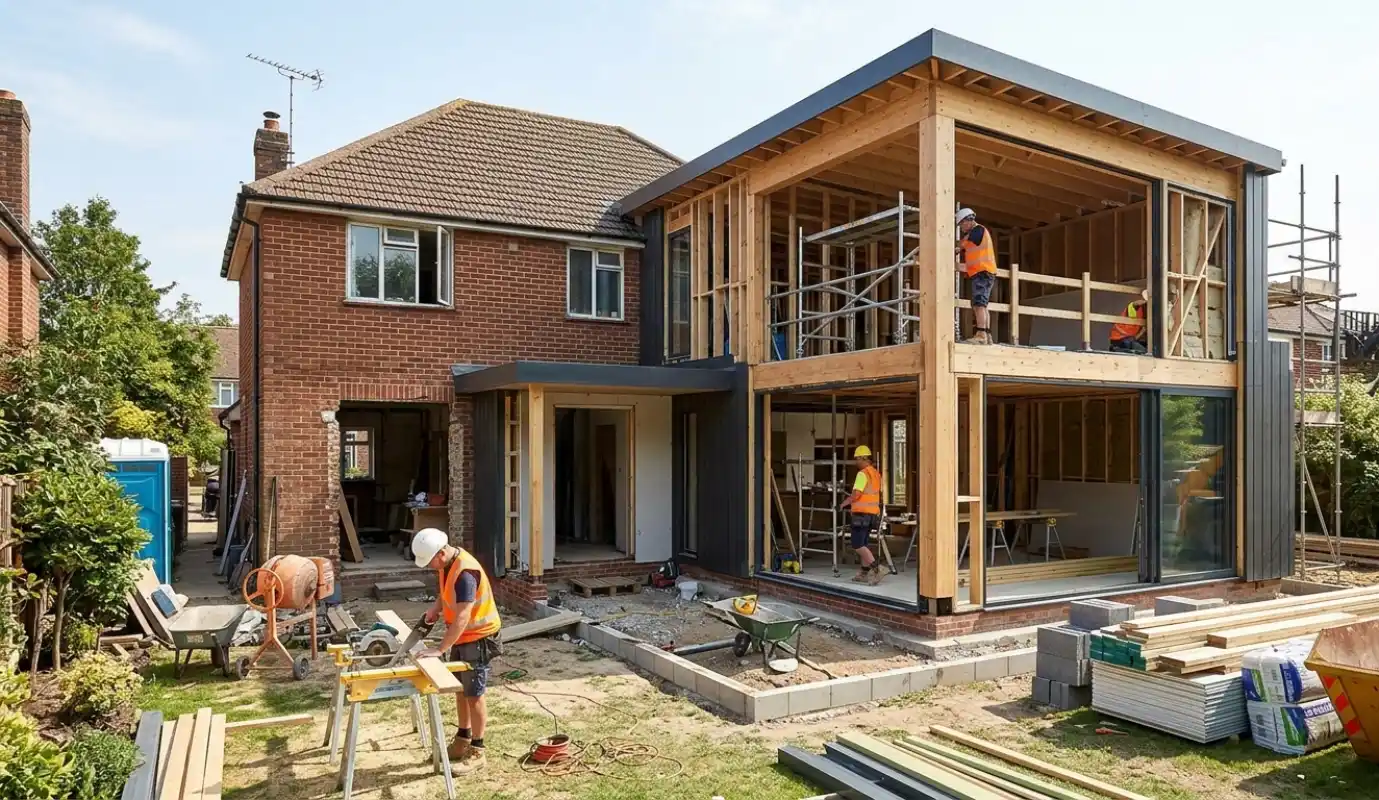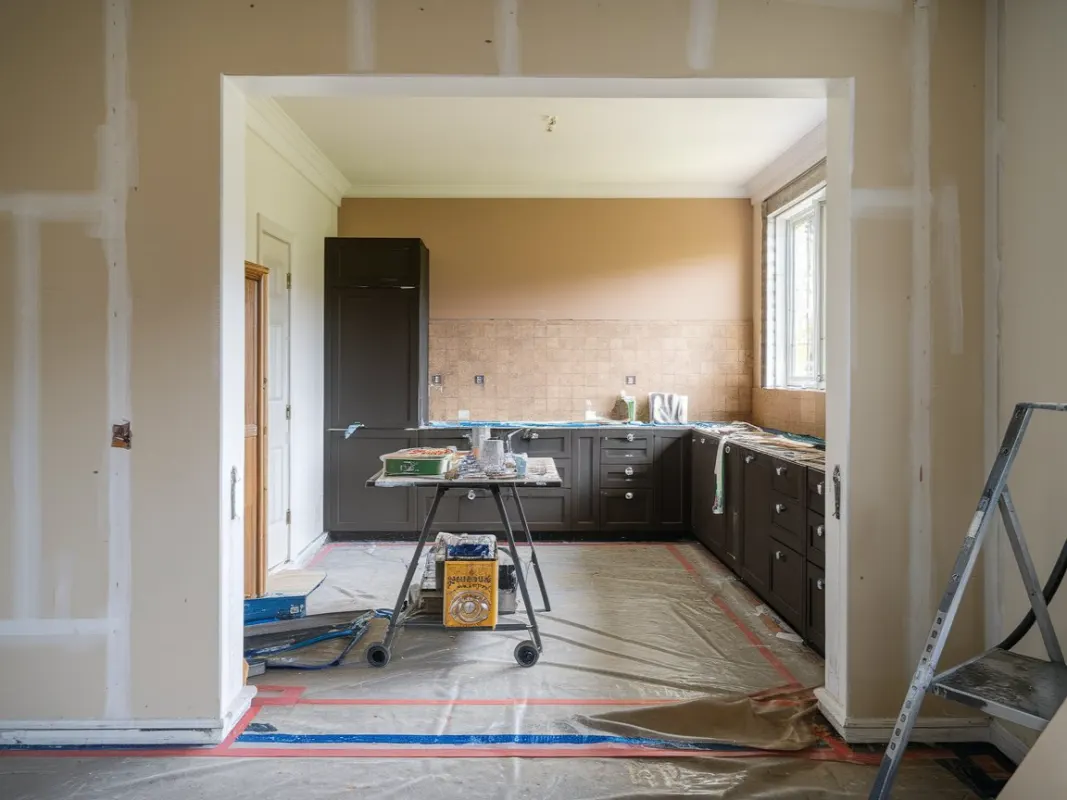Northern Virginia is a vibrant, dynamic region, constantly evolving with new developments, expanding businesses, and a diverse housing stock. From the bustling urban centers of Arlington and Alexandria to the sprawling suburban landscapes of Fairfax and Loudoun, construction and renovation projects are a continuous pulse, shaping the very fabric of our communities. Various companies, including general contractors and specialty companies, play a significant role in this landscape. For homeowners dreaming of a modern kitchen, business owners envisioning a new commercial space, or developers planning large-scale ventures, the journey from concept to completion can seem daunting. This is where the crucial role of a general contractor comes into play – the orchestrator, the guide, and the single point of contact who transforms aspirations into tangible realities.
This comprehensive guide, presented by AZA Builders, is designed to demystify the general contractor’s role, highlight their immense value, and equip you with the knowledge needed to embark on your next construction or renovation project with confidence in Northern Virginia. We’ll delve deep into what a general contractor does, why their expertise is indispensable, and how to select the perfect partner for your unique needs. The general contractor often acts as the prime contractor, leading the project and coordinating with the architect and the design team to ensure all project requirements are met. At AZA Builders, we pride ourselves on being that trusted, experienced general contractor in Northern Virginia, committed to delivering unparalleled quality, transparency, and client satisfaction.
Table of Contents
ToggleWhat Exactly Does a General Contractor Do? Unpacking the Core Responsibilities
The term “general contractor” often evokes images of someone building a house or managing a construction site. While true, this perception only scratches the surface of the multifaceted responsibilities a skilled general contractor (GC) undertakes. They are far more than just a builder; they are the central nervous system of any construction project, coordinating every moving part to ensure a seamless, efficient, and successful outcome. The general contractor, often referred to as the prime contractor, is responsible for managing all tasks and important responsibilities throughout construction projects, and their general contractor works encompass a wide range of different aspects of project management.
At its core, a general contractor assumes responsibility for virtually all aspects of a construction or renovation project, from its inception to its final touches. Think of them as the conductor of a complex orchestra, ensuring every instrument – from specialized subcontractors to material suppliers – plays in harmony to produce a masterpiece.
Here’s a detailed breakdown of the core responsibilities a general contractor handles:
Project Planning & Management
The journey of any successful build begins long before a single shovel breaks ground. The general contractor is instrumental in laying this foundational groundwork:
- Initial Consultation and Feasibility Studies: A good GC starts by understanding your vision, needs, and objectives. They conduct feasibility studies to assess the practicality and potential challenges of your proposed project on a specific site.
- Scope Definition and Goal Setting: Collaborating closely with you, the GC helps define the precise scope of work, ensuring clarity on what the project entails and setting realistic goals for its outcome. At this stage, all tasks required for the project are identified to ensure nothing is overlooked.
- Budget Development and Cost Control: This is a critical area. The GC provides detailed cost estimates, working to align the project with your budget while anticipating potential unforeseen expenses. Contract documents are prepared as part of the bidding process, and the GC implements robust cost control measures throughout the project to prevent overruns.
- Timeline Creation and Adherence: A comprehensive project schedule is developed, outlining key milestones, phases, and deadlines. The GC is responsible for ensuring the project stays on track and mitigating delays. As part of the bidding process, the general contractor must submit their proposal and supporting documents to the project owner for review and selection.
- Risk Assessment and Mitigation: Proactive identification of potential risks – from site conditions to material availability or weather – and developing strategies to minimize their impact. This includes having contingency plans in place.
Pre-Construction Services
Before physical construction commences, a general contractor handles crucial preparatory work:
- Site Evaluation and Selection (if applicable): For new builds or significant expansions, the GC can assist with site assessments, considering factors like accessibility, utilities, and soil conditions.
- Architectural and Engineering Coordination: The GC acts as the liaison between you and the design professionals, ensuring that architectural blueprints and engineering specifications are practical, compliant, and align with your vision.
- Permitting and Regulatory Compliance: This is an especially vital and complex area in Northern Virginia. GCs are responsible for navigating the intricate web of local zoning laws, building codes, and obtaining all necessary permits from county and city authorities. This includes understanding the specific requirements of Fairfax County, Loudoun County, Arlington County, Prince William County, and others. In many states, general contractors must be licensed to secure lien rights and work with the property owner to ensure all legal requirements are met. Improper permitting can lead to significant delays, fines, or even project termination.
- Value Engineering: Analyzing the project to identify opportunities for cost savings or performance improvements without compromising quality or design intent.
Subcontractor Management
One of the most significant values a general contractor brings is their network and expertise in managing specialized trades:
- Vetting and Selection of Qualified Subcontractors: GCs maintain relationships with a network of licensed, insured, and reputable subcontractors across various trades (e.g., electricians, plumbers, HVAC technicians, framers, roofers, painters, landscapers). General contractors hire subcontractors to complete specialized construction work, such as plumbing and electrical work, ensuring that each technical aspect of the project is handled by experts. They rigorously vet these specialists to ensure quality and reliability.
- Contract Negotiation and Administration: The GC negotiates favorable terms with subcontractors and manages their contracts, ensuring they understand and adhere to the project’s scope, budget, and timeline.
- Scheduling and Coordination of Trades: A construction project is a delicate dance of overlapping trades. The GC meticulously schedules and coordinates the activities of all subcontractors, including managing the delivery and use of equipment, ensuring they work efficiently and avoid conflicts or delays.
- Quality Control of Subcontractor Work: Throughout the project, the GC continuously inspects the work performed by subcontractors, ensuring it meets the highest standards of quality and adheres to specifications. Ensuring high quality work from all subcontractors is essential for project success.
On-Site Supervision & Safety
The general contractor’s presence on-site is continuous and critical for progress and safety:
- Daily Oversight of Construction Activities: The GC (or their appointed project manager) provides constant supervision at the job site, monitoring daily operations, managing construction work, and ensuring work progresses according to plan.
- Ensuring Adherence to Blueprints and Specifications: They are the guardians of the design, ensuring every element is built precisely as specified in the architectural plans. The installation of building systems, such as electrical, plumbing, and HVAC, is closely monitored to ensure compliance with specifications.
- Maintaining a Safe Work Environment: Safety is paramount. GCs are responsible for implementing and enforcing strict safety protocols, ensuring compliance with OSHA regulations, and protecting workers and the public.
- Problem-Solving and Adaptability to Site Challenges: Construction sites are unpredictable. A skilled GC anticipates potential issues and swiftly develops solutions for unexpected challenges, such as unforeseen site conditions, material delivery delays, or design modifications.
Communication & Reporting
Effective communication is the bedrock of a successful client-contractor relationship:
- Regular Updates to Clients: GCs keep clients informed through scheduled meetings, detailed reports, and proactive communication about project progress, milestones, and any potential issues. These reports include detailed descriptions of any changes or progress to ensure transparency.
- Transparent Reporting on Progress, Budget, and Schedule: Clients receive clear, understandable updates on how the project is tracking against its initial budget and timeline.
- Managing Client Expectations: By setting realistic expectations from the outset and communicating openly, the GC helps manage client satisfaction throughout the process.
Quality Control & Assurance
Delivering a high-quality finished product is a hallmark of a reputable general contractor:
- Implementing Rigorous Quality Checks: Systematic inspections are conducted at various stages to ensure materials and workmanship meet industry standards and project specifications, with the goal of ensuring high quality work at every stage.
- Punch List Completion and Final Walk-Throughs: As the project nears completion, the GC creates a “punch list” of minor items needing attention. They then conduct a final walk-through with the client to ensure everything is satisfactory before final handover.
Post-Construction Services
A reliable general contractor’s commitment extends beyond project completion:
- Warranty Information and Support: Providing clear details on warranties for materials and workmanship. Reputable contractors also maintain workers compensation insurance to protect their employees, ensuring ongoing legal compliance and safety even after your project is finished.
- Post-Project Follow-Up: Addressing any questions or minor issues that may arise after the project is officially handed over.
In essence, a general contractor is your indispensable partner, streamlining a complex process, safeguarding your investment, and ensuring your construction or renovation vision for Northern Virginia comes to life with precision and professionalism.
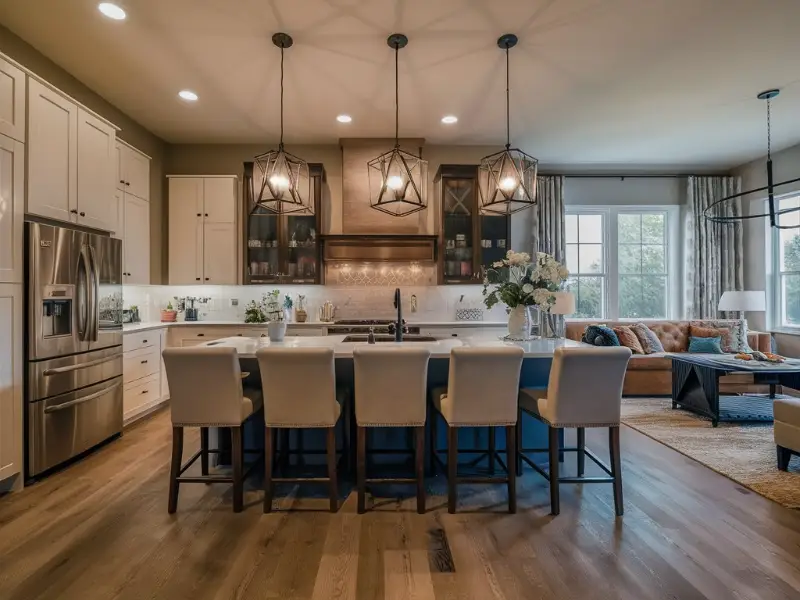
Why Hire a General Contractor in Northern Virginia? The ROI of Expertise
Embarking on a construction or renovation project, whether a custom home build in Great Falls, a commercial fit-out in Tysons, or a historic renovation in Alexandria, represents a significant investment of time, money, and emotional energy. While the allure of managing a project yourself to “save costs” might be tempting, the complexities, risks, and sheer time commitment often lead to costly mistakes, significant delays, and immense stress. Construction companies with experience in Northern Virginia are better equipped to handle complex construction projects, ensuring that all aspects are managed efficiently and professionally. This is precisely why engaging a professional general contractor, especially one intimately familiar with the Northern Virginia market like AZA Builders, offers an unparalleled return on investment (ROI).
Here’s an in-depth look at the compelling benefits of entrusting your project to a qualified general contractor:
Stress Reduction & Time Savings
The most immediate and tangible benefit for clients is the profound reduction in stress and the significant time savings.
- Single Point of Contact Simplifies Complex Projects: Imagine coordinating plumbers, electricians, carpenters, roofers, painters, and more, all while managing material deliveries, permits, and inspections. A general contractor acts as your single point of contact, streamlining all communication and coordination, freeing you from this logistical nightmare.
- Eliminating the Need for Clients to Manage Multiple Trades: Without a GC, you become the de facto project manager, responsible for scheduling, overseeing, and troubleshooting for every individual subcontractor. A GC removes this burden by taking on the responsibility of coordinating all tasks required for project completion, allowing you to focus on your daily life or business operations.
- Streamlined Process Leads to Faster Completion: With their experience in project sequencing and managing diverse teams, GCs can anticipate and mitigate potential bottlenecks, ensuring a smoother workflow and often leading to faster, more efficient project completion compared to self-managed builds.
Budget Control & Cost Efficiency
While a general contractor’s fee is an expense, their expertise often results in overall cost savings and better financial management.
- Accurate Estimating and Transparent Pricing: Experienced GCs provide detailed, transparent bids that account for all project components, including all necessary equipment, reducing the likelihood of hidden costs or significant surprises.
- Leveraging Relationships with Suppliers for Better Material Costs: GCs have established relationships with suppliers and can often secure materials at wholesale or discounted rates, passing those savings on to the client. Their buying power exceeds that of an individual homeowner.
- Avoiding Costly Mistakes and Delays: Mistakes on a construction site – from improper installations to structural errors – can be incredibly expensive to rectify. A GC’s oversight and quality control prevent many of these issues. Delays also translate to costs, whether it’s extended loan interest, lost business revenue, or temporary housing expenses.
Quality Assurance & Craftsmanship
The general contractor is committed to delivering a superior finished product.
- Access to a Network of Vetted, High-Quality Subcontractors: GCs work with tried-and-true subcontractors who meet their stringent standards for quality, reliability, and professionalism. This significantly reduces the risk of subpar workmanship.
- GC’s Oversight Ensures Adherence to Industry Standards and Best Practices: They possess the technical knowledge to ensure all work conforms to current building codes, industry best practices, and the original architectural specifications.
- Commitment to Superior Finishes and Structural Integrity: A reputable GC stands behind their work, ensuring that both the visible finishes and the underlying structural elements are built to last, with a strong focus on delivering high quality work to ensure client satisfaction.
Risk Management & Legal Compliance
Navigating the legal and regulatory landscape of construction can be perilous for the uninitiated.
- Understanding and Navigating Northern Virginia’s Zoning Laws, Building Codes, and Permitting Processes: Each county and municipality in Northern Virginia has unique requirements. A local GC is intimately familiar with these nuances, ensuring all necessary permits are obtained and inspections passed, avoiding costly penalties or project shutdowns.
- Ensuring Proper Insurance and Licensing: A reputable GC carries comprehensive liability insurance and, in many states, is required to carry workers compensation insurance to protect employees and comply with legal standards. Being properly licensed in many states also grants contractors lien rights, allowing them to enforce mechanic’s liens and protect their payment interests during construction projects. They also verify that all subcontractors are appropriately licensed and insured.
- Mitigating Construction-Related Risks (Accidents, Delays, Defects): GCs implement safety protocols, manage schedules to reduce delays, and oversee quality to minimize defects, actively mitigating common construction risks.
Expert Problem Solving
The unexpected is almost guaranteed on a construction project. A GC is equipped to handle it.
- Anticipating and Resolving Issues Before They Escalate: Their experience allows GCs to foresee potential problems and address them proactively, often before they become major issues.
- Creative Solutions for Unexpected Challenges: Whether it’s discovering unknown underground conditions, navigating material shortages, or adapting to design changes, GCs have the expertise to develop practical and cost-effective solutions. They also ensure that detailed descriptions of any changes or solutions are documented, providing clarity and accountability throughout the project.
Enhanced Communication & Transparency
A strong client-contractor relationship is built on clear and consistent communication.
- Clear, Consistent Communication Channels: GCs establish a structured communication plan, providing regular updates and a single point of contact for all project-related inquiries, avoiding confusion and miscommunication. Maintaining open communication is essential for keeping customers informed and satisfied.
- Detailed Progress Reports and Financial Updates: You’ll receive transparent reports on the project’s status, expenditures, and adherence to the budget, ensuring you’re always informed.
Peace of Mind
Perhaps the most invaluable benefit is the peace of mind that comes from knowing your significant investment is in the capable, professional hands of a reputable company. You can trust that the project will be managed expertly, completed to high standards, and that any challenges will be handled efficiently.
In summary, while hiring a general contractor in Northern Virginia involves an upfront cost, the benefits of their expertise in project management, cost control, risk mitigation, and quality assurance far outweigh the expense. They are not just builders; they are essential partners who safeguard your interests and ensure the successful realization of your construction dreams. Choosing a reputable company provides peace of mind throughout the construction process.
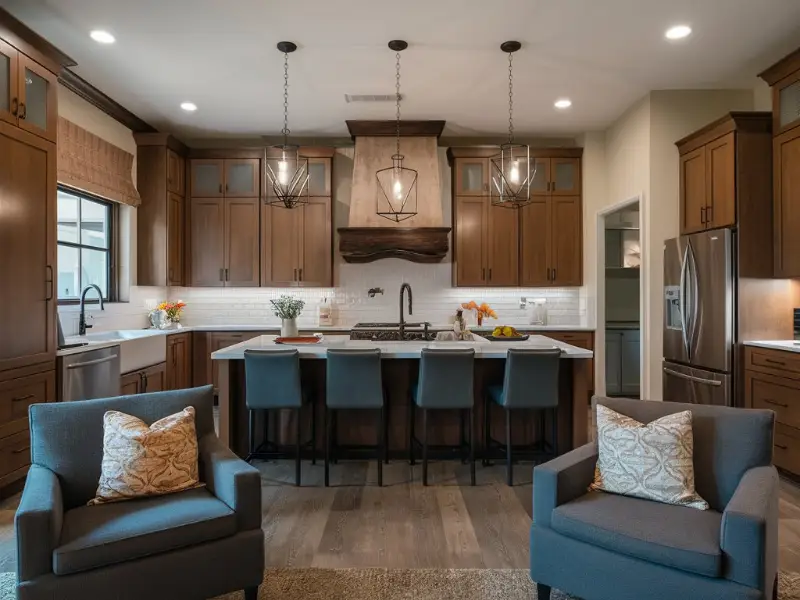
Choosing the Right General Contractor in Northern Virginia: A Step-by-Step Guide
Selecting the right general contractor (GC) for your project in Northern Virginia is arguably the most critical decision you’ll make. The right GC will be a partner, a guide, and a problem-solver, ensuring your vision comes to life seamlessly. The wrong choice, however, can lead to frustration, delays, budget overruns, and compromised quality. With the diverse and competitive market in Northern Virginia, a methodical approach is essential. It’s important to understand the difference between a general contractor, a construction manager, and a prime contractor: a general contractor typically oversees the construction process and coordinates subcontractors; a construction manager is often involved earlier, works directly for the owner, and manages estimating, hiring, and project oversight; while a prime contractor is the main entity holding the primary contract with the project owner, sometimes used interchangeably with general contractor, especially on larger projects.
Here’s a step-by-step guide to help you choose the ideal general contractor. For some projects, especially those requiring both design and construction services, you may benefit from hiring a design build company that manages integrated design build projects, streamlining the process from initial design through final construction.
1. Define Your Project Scope
Before you even begin contacting contractors, you must have a clear understanding of your own needs.
- Clarity on Goals, Budget, and Timeline Before Contacting Contractors: What exactly do you want to achieve? What is your realistic budget range? When do you ideally need the project completed? The more specific you are, the better contractors can assess your needs and provide accurate proposals. As the project owner, your objectives and requirements should be clearly defined at the outset to ensure all parties understand the project scope.
- Residential vs. Commercial Distinctions: Understand that residential and commercial projects often require different specialized GCs due to varying codes, regulations, and project complexities. Be clear about the nature of your project.
2. Research & Shortlisting (Local Focus)
Leverage various resources to identify potential candidates, emphasizing those with a strong Northern Virginia presence.
- Online Searches: Use specific keywords like “General Contractor Northern Virginia,” “Home Builder Fairfax VA,” “Commercial Construction Loudoun,” “Remodeling Contractor Arlington,” “Custom Home Builder Alexandria.” Research various companies and compare their credentials to ensure you are considering reputable, licensed firms. This will help filter for local expertise.
- Google My Business (GMB) Profiles: Pay close attention to GMB listings. Look for positive reviews, professional photos of past projects, and complete business information. This is a strong indicator of a reputable local business.
- Online Directories: Platforms like Houzz, Angie’s List, Yelp, and the Better Business Bureau (BBB) can provide valuable insights, reviews, and portfolios.
- Word-of-Mouth Referrals: Ask friends, family, neighbors, local real estate agents, architects, or interior designers for recommendations. Personal endorsements are often the most reliable.
- Checking State Licensing Boards: Crucially, verify that any contractor you consider is properly licensed by the Virginia Department of Professional and Occupational Regulation (DPOR). This confirms their legal authorization to operate in the state and indicates they meet certain professional standards.
- Industry Associations: Look for contractors who are members of professional organizations like the National Association of Home Builders (NAHB), National Association of the Remodeling Industry (NARI), or local chambers of commerce.
3. Initial Vetting (First Impressions)
Once you have a shortlist, conduct a preliminary review to narrow it down further.
- Professionalism of Website and Online Presence: A reputable company will have a well-designed, informative website that reflects professionalism and a commitment to their business.
- Responsiveness to Inquiries: How quickly and thoroughly do they respond to your initial calls or emails? This is an early indicator of their communication style and attentiveness.
- Portfolio Review (Look for Similar Projects): Does their online portfolio showcase projects similar in scale, style, and complexity to yours? This suggests they have relevant experience.
4. The Interview Process: Key Questions to Ask
Once you have 2-3 strong candidates, schedule in-person meetings or detailed virtual calls. Prepare a list of specific questions:
- Experience with Similar Projects in Northern Virginia: “Can you show me specific examples of projects you’ve completed in [Fairfax/Loudoun/Arlington/etc.] that are similar to what I’m planning?”
- Licensing, Bonding, and Insurance Verification: “Can you provide proof of your Virginia DPOR contractor’s license, liability insurance, and workers compensation insurance? What is your bond capacity?” (Crucial for your protection. Always specifically request proof of workers compensation insurance, as reputable contractors carry this coverage to comply with legal requirements and protect their employees.)
- Project Management Approach and Communication Style: “How do you typically manage projects of this size? What are your communication protocols? How often will I receive updates?”
- Subcontractor Relationships and Vetting Process: “How do you select your subcontractors? Do you have long-standing relationships with reliable tradespeople? What’s your vetting process for them?”
- Budgeting and Payment Schedules: “How do you approach budgeting and cost control? What is your proposed payment schedule, and what are the terms for progress payments?”
- Change Order Process: “How do you handle changes to the scope of work or unexpected issues that might impact the budget or timeline?” (A clear, fair change order process is essential).
- Warranty and Post-Construction Support: “What kind of warranty do you offer on your work? What is your process for addressing any issues that arise after the project is completed?”
- References (and How to Check Them Effectively): “Can you provide a list of at least three recent clients I can contact, preferably for projects similar to mine?”
- When checking references, ask:
- Was the project completed on time and within budget?
- How was their communication?
- How did they handle unexpected problems or change orders?
- Were you satisfied with the quality of their work?
- Would you hire them again?
- Availability: “What is your current workload, and when could you realistically start my project?”
5. Reviewing Proposals & Contracts
Once you receive bids, compare them thoroughly. Don’t automatically choose the lowest bid.
- Detailed Scope of Work: Ensure the proposal clearly outlines every aspect of the project. The contract documents should include general conditions and detailed descriptions of all work to be performed. A vague scope can lead to disputes later.
- Itemized Cost Breakdown: Look for a detailed breakdown of costs, including materials, labor, and subcontractor fees.
- Payment Schedule and Terms: Understand when payments are due and under what conditions. Be wary of large upfront payments.
- Change Order Process: Reconfirm the process for handling any modifications or unforeseen work.
- Timeline and Milestones: Ensure the proposed timeline is realistic and includes clear milestones.
- Dispute Resolution Clauses: Understand how disagreements would be resolved if they arise.
- Understanding Lien Waivers: Ensure you understand how lien waivers protect you from subcontractors placing liens on your property if the GC fails to pay them. Note that proper licensing grants contractors lien rights, which help protect their payment interests during construction projects.
6. Red Flags to Watch Out For
Be vigilant for any warning signs that could indicate a less-than-reputable contractor:
- Unusually Low Bids: While attractive, a bid significantly lower than others often indicates corners being cut, hidden costs, or inexperience.
- Lack of References or Poor Communication: A reluctance to provide references or consistently slow/vague responses are major red flags. A reputable company will be transparent and responsive throughout the vetting process.
- No Written Contract or Vague Terms: Never proceed without a clear, detailed written contract. Verbal agreements are unreliable.
- Pushy Sales Tactics: High-pressure sales can indicate a contractor more interested in closing a deal than building a relationship.
- Requests for Large Upfront Payments: A reputable contractor typically requires a reasonable initial deposit, not a substantial portion of the project cost upfront.
The Importance of Local Knowledge
For projects in Northern Virginia, choosing a GC with local expertise is paramount. Local construction companies have established relationships with local authorities and suppliers, which can expedite processes. They:
- Understand the specific permitting processes and building codes unique to each county (Fairfax, Loudoun, Arlington, Prince William, etc.).
- Have established relationships with local inspectors and suppliers, which can expedite processes.
- Are familiar with local climate considerations, soil conditions, and architectural styles common in the region.
- Are more accessible for site visits and ongoing communication.
By following these steps, you significantly increase your chances of finding a general contractor in Northern Virginia who aligns with your vision, budget, and quality expectations, leading to a successful and satisfying project.

Northern Virginia’s Construction Landscape: Trends and Considerations
Northern Virginia is a dynamic and ever-evolving region, and its construction landscape reflects this vibrancy. From the booming tech corridors to the charming historic districts, the trends and considerations for building and renovating here are distinct. Construction companies must stay current with evolving building systems and collaborate closely with the design team to ensure all client needs are met. A general contractor with deep local knowledge is crucial for navigating this unique environment.
Key Growth Areas & Submarkets
Understanding where growth is concentrated helps grasp the regional construction pulse:
- Fairfax County: As the most populous jurisdiction, Fairfax continues to see significant residential expansions, particularly with custom homes and luxury developments, alongside robust mixed-use projects (e.g., in Tysons, Reston) that combine residential, office, and retail. Various companies, including general contractors and specialty firms, are actively contributing to this development.
- Loudoun County: Experiencing rapid residential and commercial growth, especially driven by the data center industry in Ashburn and Sterling. This fuels demand for new housing, commercial offices, and infrastructure, with numerous companies playing key roles in these projects.
- Arlington County: Characterized by urban infill, high-density residential buildings, and transit-oriented development around Metro stations. Renovation and adaptive reuse of existing structures are common, with local companies frequently managing these efforts.
- Prince William County: A growing suburban county with expanding residential communities and increasing commercial and industrial development. Many companies are involved in supporting this ongoing growth.
- Alexandria, Leesburg, Reston, McLean, Great Falls: Each area has its own specific considerations, from historic preservation in Old Town Alexandria to large custom homes on sprawling estates in Great Falls, with specialized companies addressing the unique needs of each locality.
Current Market Trends Affecting Construction
Northern Virginia’s construction sector is influenced by broader economic and technological shifts:
- Supply Chain Resilience: General contractors in NOVA have become adept at navigating global supply chain disruptions. This involves proactive planning, diverse supplier networks, and identifying alternative materials to minimize project delays and cost impacts. Managing equipment and building systems is also increasingly important in today’s market, as technological advancements and integration of complex systems require careful coordination and planning.
- Sustainable Building Practices (Green Construction): There’s a growing demand for energy-efficient homes and commercial buildings. This includes incorporating LEED certification standards, passive house principles, solar panel integration, high-efficiency HVAC systems, and the use of sustainable materials. Northern Virginia clients are increasingly conscious of environmental impact and long-term operating costs.
- Smart Home Technology Integration: New construction and major renovations frequently integrate smart home systems for lighting, climate control, security, entertainment, and even appliance management, offering greater convenience and energy efficiency.
- Aging-in-Place & Universal Design: With an aging population, there’s a rising demand for homes designed for accessibility and adaptability, allowing residents to live comfortably and safely in their homes for longer. Features like no-step entries, wider doorways, grab bars, and accessible bathrooms are becoming standard requests.
- Mixed-Use Development: The trend of creating walkable, vibrant communities where people can live, work, and play without extensive commutes continues to dominate, particularly in urban and suburban centers. GCs are essential in managing the complexities of these multi-faceted projects.
- Renovation vs. New Construction: While new construction is strong, renovation projects remain a significant portion of the Northern Virginia market. Factors like high land costs, a desire to remain in established communities, and the unique character of existing homes often drive homeowners to opt for significant remodels or additions.
- Economic Outlook: Local job growth, interest rates, and housing affordability directly impact construction activity. A skilled GC stays abreast of these economic indicators to provide realistic project assessments and navigate market shifts.
Navigating Local Regulations & Permitting
This is one of the most challenging aspects of construction in Northern Virginia and where a local GC truly shines:
- County-Specific Requirements: Each county (Fairfax, Loudoun, Arlington, Prince William) and individual city (Alexandria, Falls Church, Manassas, Fairfax City) has its own distinct building permit processes, zoning ordinances, and inspection protocols. What’s permissible in one jurisdiction may not be in another. Preparing accurate contract documents—including detailed drawings, specifications, and exhibits—is essential for regulatory compliance.
- Historic Preservation Considerations: Areas like Old Town Alexandria or historic sections of Leesburg have stringent regulations regarding renovations, additions, and even exterior material choices to maintain historical integrity. GCs with experience in these areas are invaluable.
- Importance of a GC’s Experience with Local Authorities: A general contractor who regularly works with local planning departments, building officials, and inspectors can expedite the permitting process, troubleshoot issues efficiently, and ensure compliance, saving clients significant time and potential headaches. They understand the nuances of local review processes and common pitfalls.
Architectural Styles & Design Preferences
Northern Virginia showcases a wide array of architectural styles, and GCs must be versatile:
- Diverse Styles: From traditional colonial and brick ramblers to modern farmhouses, craftsman-style homes, and contemporary designs, the region embraces diverse aesthetics.
- Adaptability: A competent GC possesses the flexibility and experience to bring various architectural visions to life, understanding the structural and aesthetic requirements of different styles. They work closely with the design team and architect to realize the client’s vision, ensuring the final build matches the envisioned design.
By staying informed about these trends and local considerations, a general contractor in Northern Virginia ensures projects are not only structurally sound and aesthetically pleasing but also comply with all regulations and meet the evolving demands of the market. This expertise is a key differentiator for AZA Builders.
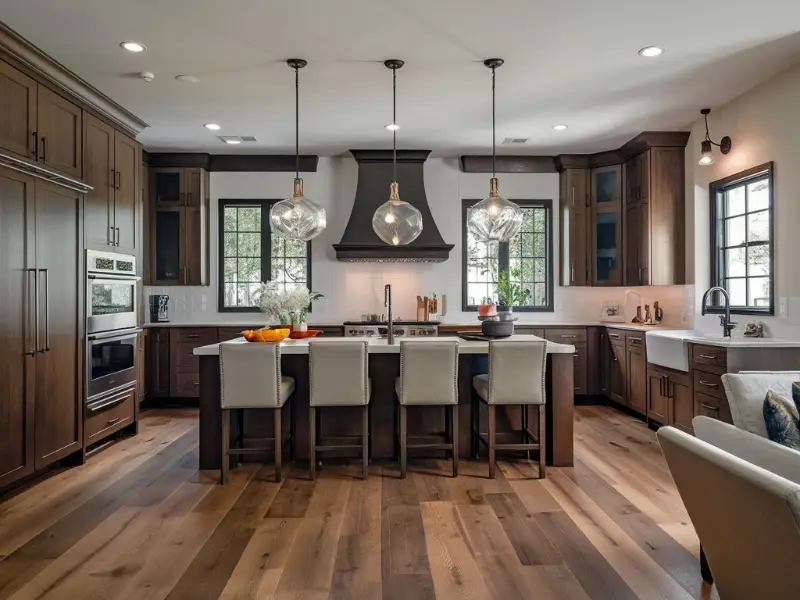
The Client-Contractor Partnership: Building a Foundation of Trust
A successful construction or renovation project is not merely about blueprints and bricks; it’s fundamentally about a strong, collaborative partnership between the client and the general contractor. In Northern Virginia, where projects often represent significant investments and hold deep personal or business significance, fostering trust, transparency, and effective communication is paramount. At AZA Builders, we believe that a truly seamless construction experience is built on this foundation—a company’s reputation is built on satisfied customers and strong partnerships.
Here’s what defines a productive client-contractor partnership:
Importance of Clear Communication
Communication is the lifeblood of any project. Without it, misunderstandings flourish, and progress stalls.
- Setting Expectations from the Outset: From the initial consultation, a good GC clearly outlines the project scope, budget, timeline, and potential challenges. They also clarify communication channels and frequency, ensuring both parties are on the same page.
- Regular Meetings and Preferred Communication Methods: Establish a routine for updates—weekly meetings, bi-weekly calls, or email summaries. During these updates, detailed descriptions of project progress are shared to ensure all modifications and developments are accurately documented. Determine the client’s preferred method and frequency of communication.
- Addressing Concerns Promptly and Professionally: When questions or concerns arise, a reliable GC responds quickly, provides clear explanations, and works to resolve issues to the client’s satisfaction. No question is too small.
Transparency in Budget & Schedule
Financial clarity and timeline adherence are constant points of client interest.
- Understanding the Payment Schedule and Invoicing: The contract should clearly detail the payment milestones and invoicing process. The contract documents should clearly outline all payment terms, ensuring clients understand what work corresponds to each payment.
- Managing Change Orders Effectively and Fairly: Changes are inevitable in most projects. A transparent GC has a clear, written process for change orders, detailing how they will be priced, approved, and how they will impact the schedule. This avoids surprises and disputes.
- Realistic Timelines and Contingency Planning: While optimism is good, a professional GC provides realistic timelines, acknowledging potential delays due to weather, material availability, or unforeseen site conditions. They also build in contingency plans and budget for such eventualities.
Flexibility & Adaptability
Construction is a fluid process, and both parties must be prepared for the unexpected.
- Acknowledging That Unforeseen Issues Can Arise: Acknowledging that not every variable can be controlled creates a more realistic and trusting environment.
- The Contractor’s Role in Presenting Solutions: When challenges occur, the GC doesn’t just present a problem; they offer potential solutions, along with their associated costs and timeline impacts. The contractor must also be prepared to adjust tasks as needed to address unforeseen issues.
- Client’s Role in Timely Decision-Making: Clients also have a responsibility to make timely decisions on selections (materials, finishes) and approvals (change orders) to keep the project moving forward. Delays from the client’s side can impact the schedule and budget.
Defining Roles & Responsibilities
Clarity on who is responsible for what prevents friction.
- What the Client is Responsible For: This might include making timely design approvals, material selections, and ensuring access to the site.
- What the Contractor is Responsible For: This encompasses everything from project management and subcontractor coordination to quality control and safety. Fulfilling these important responsibilities is key to the project’s success.
Problem Resolution
Even with the best intentions, issues can arise. A clear process for resolution is vital.
- Establishing a Clear Process for Addressing Disputes or Concerns: A good contract will outline a method for dispute resolution, whether it’s direct negotiation, mediation, or arbitration. It is important to ensure that detailed descriptions of any disputes or resolutions are documented to accurately capture the situation and support effective management.
- Focus on Solutions: Both parties should approach problems with a solutions-oriented mindset rather than assigning blame.
Building a Long-Term Relationship
A successful project often leads to future opportunities and referrals.
- Beyond the Project: A great GC provides post-project support, maintenance advice, and remains a resource for future needs.
- The Value of Referrals and Repeat Business: Satisfied customers are the best source of future business. A GC dedicated to trust and quality understands the long-term value of strong relationships, as happy customers are likely to refer new clients and return for additional projects.
- Testimonials and Case Studies: A good GC will have a portfolio of satisfied clients and be eager to share their success stories, which further builds trust for prospective clients.
At AZA Builders, we view every project in Northern Virginia as an opportunity to forge a lasting partnership. We prioritize open dialogue, proactive problem-solving, and unwavering dedication to your vision, ensuring that your construction journey is as rewarding as the final result.
AZA Builders: Your Partner for Northern Virginia Construction Success
In the competitive and diverse landscape of Northern Virginia’s construction industry, choosing the right general contractor or construction company is the most pivotal decision you’ll make. As a leading company among construction companies in Northern Virginia, AZA Builders stands out for our expertise and dedication. At AZA Builders, we don’t just construct buildings; we build relationships, founded on trust, transparency, and an unwavering commitment to excellence. With a deep understanding of the unique characteristics of the Northern Virginia market, we are your premier partner for turning your residential and commercial construction and renovation dreams into tangible realities.
Our Philosophy & Values
Our approach to every project is guided by a core set of principles:
- Commitment to Quality: We believe that superior craftsmanship and the use of high-quality materials are non-negotiable. Delivering high quality work is a core value of our company, ensuring every nail, every beam, every finish reflects our dedication to lasting quality.
- Integrity and Transparency: We operate with complete honesty and openness. Our proposals are detailed, our communication is clear, and we keep you informed every step of the way, ensuring no hidden costs or surprises.
- Client Satisfaction: Your vision is our mission. We go above and beyond to understand your needs, exceed your expectations, and deliver a final product that brings your aspirations to life. We’re not just building structures; we’re building dreams.
- “Built on Trust, Delivered with Excellence”: This isn’t just a slogan; it’s the foundation of everything we do. We earn your trust through consistent performance and deliver excellence in every detail.
Our Experience in Northern Virginia
Our roots run deep in Northern Virginia, and our portfolio reflects our extensive local expertise:
- Years of Service and Local Projects: AZA Builders has proudly served the Northern Virginia community for years, completing a wide array of successful construction projects across its diverse counties and cities.
- Showcasing Expertise Across Various Northern Virginia Counties and Cities: Whether it’s navigating the specific permitting requirements of Fairfax County, understanding the architectural nuances of historic Alexandria, managing large-scale developments in Loudoun County, or handling complex urban infill in Arlington, our team possesses the intimate local knowledge required for success.
- Specific Project Examples: Our portfolio showcases our versatility, from crafting bespoke custom homes in McLean and Great Falls to undertaking intricate whole-house renovations in Vienna, designing modern commercial fit-outs in Tysons Corner, and executing seamless additions in Leesburg. Each project is a testament to our adaptability and commitment to client satisfaction.
Our Comprehensive Services
AZA Builders offers a full spectrum of general contracting services, ensuring we can be your single source for any project:
- Design-Build: As a design build company, we streamline the entire process from initial concept and architectural design through construction, managing design build projects from start to finish. This provides a single point of accountability and enhanced efficiency.
- Custom Homes: Bringing your unique vision for a dream home to life, from foundation to finish, meticulously crafted to your specifications.
- Whole-House Renovations: Transforming existing residences into modern, functional, and aesthetically pleasing spaces that meet contemporary living standards.
- Commercial Fit-Outs: Delivering tailored commercial spaces that optimize functionality, reflect brand identity, and meet business operational needs, from retail to office environments.
- Additions: Expanding your existing home or commercial property with seamless, well-integrated additions that enhance space and value.
- Basement Finishing: Maximizing usable space and increasing property value through professional basement finishing and remodeling.
- Kitchen & Bathroom Remodeling: Creating stunning, highly functional kitchen and bathroom spaces that become the heart of any home. We can hire subcontractors to complete specialized construction work, ensuring expert handling of all specialized construction work required, such as plumbing, electrical, and other technical tasks.
Our Team & Network
The strength of AZA Builders lies in our people and our connections:
- Experienced Project Managers: Our project managers are seasoned professionals, adept at planning, coordinating, and overseeing every detail of your project.
- Skilled Craftsmen: We employ highly skilled, in-house craftsmen who take pride in their work, ensuring meticulous attention to detail and superior finishes.
- Trusted Subcontractors: We have cultivated long-standing relationships with a network of vetted, licensed, and insured subcontractors who share our commitment to quality and professionalism.
- Strong Relationships with Local Architects, Designers, and Suppliers: Our collaborative network ensures we work closely with the design team and architect from the earliest stages, coordinating project planning and specifications. We also ensure access to the best equipment and high-quality materials at competitive prices, benefiting every project.
Client Testimonials & Success Stories
The true measure of our success is the positive feedback from our customers and the satisfaction of our clients. We invite you to explore the glowing testimonials and detailed case studies on our website, showcasing how AZA Builders has consistently delivered exceptional results and exceeded expectations for homeowners and businesses across Northern Virginia.
Why Choose AZA Builders
Choosing the right company is essential for project success. When you choose AZA Builders, you’re choosing:
- Proven Local Expertise: Deep understanding of Northern Virginia’s diverse regulations, styles, and market nuances.
- Unwavering Commitment to Quality: From materials to craftsmanship, we never compromise.
- Transparent Communication: You’ll always be informed and involved.
- Efficient Project Management: We deliver on time and within budget, with minimal stress for you.
- A Partner You Can Trust: Our reputation is built on integrity and client satisfaction.
Conclusion: Building the Future of Northern Virginia, One Project at a Time
The journey of construction or renovation in Northern Virginia, whether it’s a dream home or a strategic commercial space, is an endeavor rich with potential and complexity. As this comprehensive guide has underscored, the general contractor stands as the indispensable linchpin of this entire process. They are the skilled orchestrator, the meticulous planner, the expert problem-solver, and the trusted guide who transforms your initial vision into a tangible reality. Without a competent general contractor, even the most meticulously designed projects can unravel into a maze of delays, budget overruns, and unforeseen challenges.
For homeowners and business owners across Fairfax, Loudoun, Arlington, Prince William, and beyond, choosing the right general contractor is the single most critical decision that will dictate the success and satisfaction of your project. It’s about empowering yourself with expertise, minimizing stress, and safeguarding your significant investment. A skilled general contractor navigates the intricate web of permits, manages diverse trades, controls costs, ensures quality, and ultimately delivers a seamless, rewarding experience.
At AZA Builders, we are more than just a general contracting firm; we are a dedicated partner committed to the future of Northern Virginia’s built environment. Our foundation is built on integrity, our projects are delivered with excellence, and our success is measured by the complete satisfaction of our clients. With our deep local knowledge, experienced team, and unwavering commitment to quality, we are poised to bring your next construction or renovation endeavor to life with precision and care.
Ready to discuss your next construction or renovation project in Northern Virginia?
Don’t let the complexities of construction deter you from realizing your vision. Contact AZA Builders today for a no-obligation consultation. Let our expertise guide you through every step, ensuring a smooth, efficient, and successful build that exceeds your expectations. Explore our portfolio on our website to see the quality and craftsmanship we bring to every project.
AZA Builders: Built on Trust, Delivered with Excellence.

